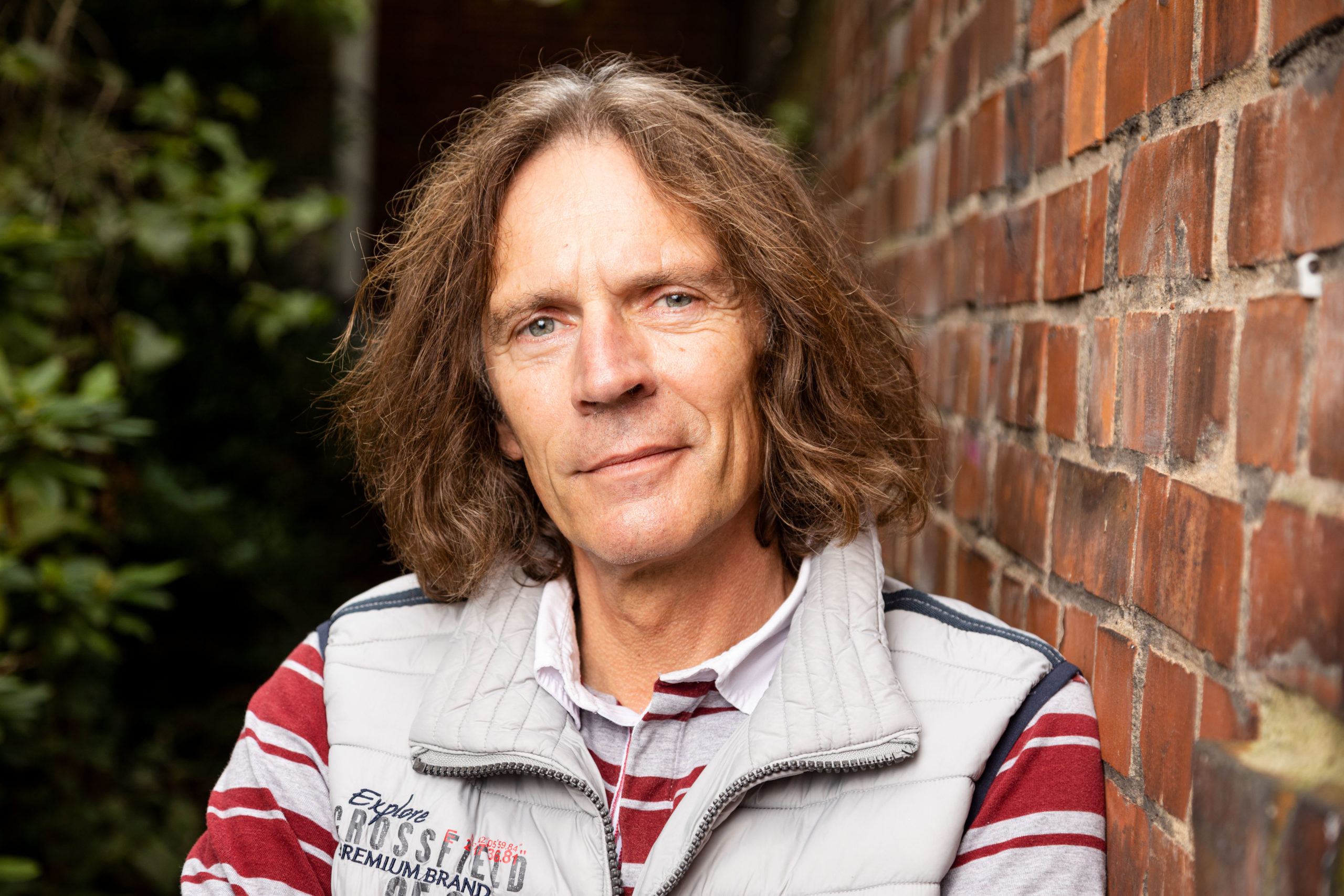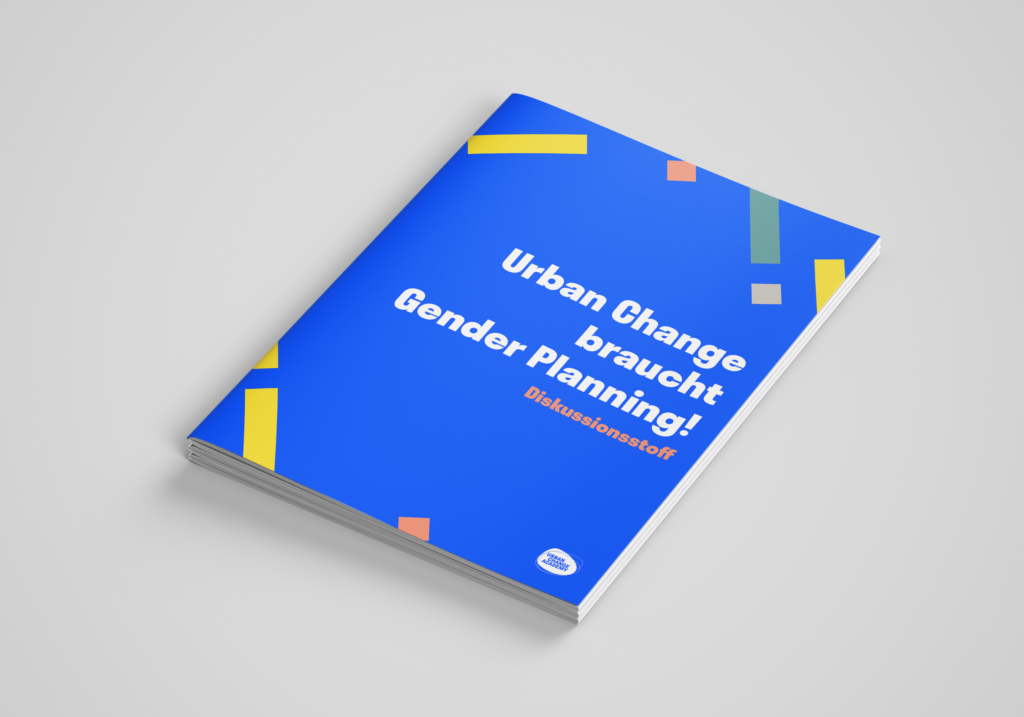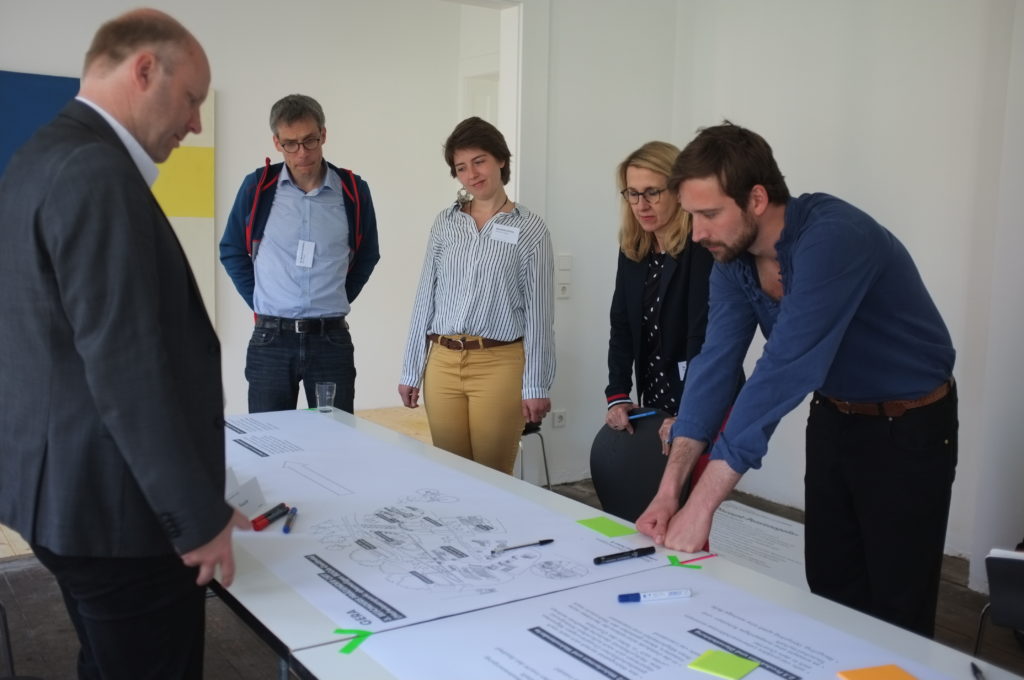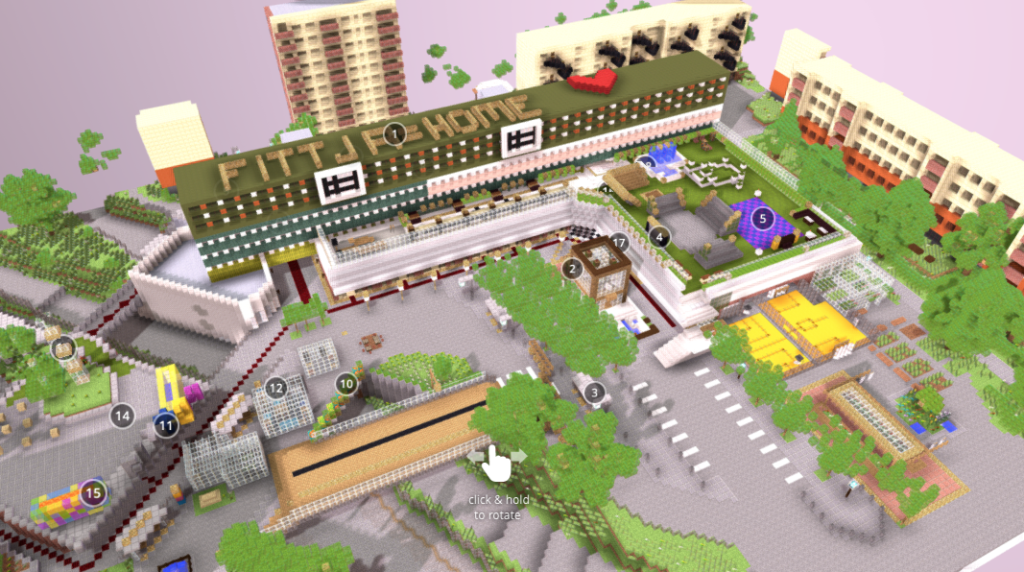Urban Change Academy: How have you personally experienced the Covid pandemic?
Stephan Karrenbauer: I have experienced it as extremely demotivating for social work. This is the first time I’ve been in a serious, serious crisis. On the one hand, we receive a lot of approval and donations to offer support to the homeless, but on the other hand, I have seen a failure on the part of the authorities‘ management that I have never seen before. Everyone is wearing a mask, which makes it more difficult to get in touch with homeless people. Since we have to deal with many people who speak little or poor German, facial expressions are crucial in order to start a conversation. This leads to many misunderstandings. As far as the atmosphere is concerned, our work has become very different. We have to explain more than ever before. The public wants to know why the support system for homeless people collapsed during the first lockdown. It is very important to us, we were not afraid that they would infect us, but that we would infect them. Homeless people belong to a group that has a weak immune system, and we are the ones who might have brought the virus with us from our skiing holidays.
How is Covid affecting the homeless?
Since December, 13 homeless people have died. Since I’ve been working here, that’s never happened. So, we do what we can. Thanks to the high level of donations, it is possible to initiate new aid measures. Together with the Diakonie and other partners, we were able to accommodate 170 homeless people in hotels. This is going really well, but with such a large number of people, something can always go wrong. It’s a very big emotional pressure.
What do you specifically want to see from politics in the coming weeks?
I would like to see more support and that people say publicly that we are doing a good job. That we get more support when something goes wrong, and people don’t point the finger at us. That the authorities say, we can’t offer everyone a single room, but we try to give the homeless the best possible protection until they can get vaccinated. Whether that is feasible, I can’t say. But I would like to see the goal expressed.
In a commentary in Hinz&Kunzt you wrote that the help system collapsed with Covid and is still only in operation again to a limited extent. What does that mean for homeless people?
To this day, only very few facilities offer the same programme as they did before the pandemic, simply because of the hygiene concepts. At Hinz&Kunzt we had a large room where homeless people could always get coffee and tea and rest. This room is now closed, and everything runs through a few open windows. This is similar in many day shelters – homeless people can no longer stay there from morning to night, they are only allocated a time window. And in this time window they have to eat, take care of their physical hygiene, do their mail and attend counselling sessions.
Homeless people are left to fend for themselves more than ever – this could already be seen during the summer. When you change trains at the main station, you see more people in destitution than ever before. Many were already lying in their own urine early in the morning and could not move at all. We have a working group in the city centre where almost all social workers exchange information with contact area officers. According to a rumour, several patrol cars had to come during food distribution at the main station because there had been fights – the homeless people were apparently afraid they would not get anything to eat. Many citizens got the impression that the police wanted to break up the food distribution. But it was the other way round! The police tried to sort out the people so that everyone got something and distances were kept. There was great distress. This impression was also confirmed by the director of the Alimaus day care centre. She expressed the feeling that the people looked starved. Because many facilities were closed, further impoverishment took place – and this must have been noticeable to anyone walking around with their eyes open.
Yes, terrible.
Really, really, really terrible. At first I doubted that 13 people had died between December and now. It has nothing to do with freezing to death. I think it’s horrible enough when you’re on the street and then some people actually die on the street. Furthermore, most of the people died alone. That is simply because people’s batteries were already empty during the summer.
If the homeless people do not take up the places in collective shelters of the winter emergency programme, one should at least check one’s own concept. Why do they avoid these places? In my opinion, one of the main reasons is the bleak image of seeing three hundred other people every evening, some of whom are much worse off than you are – that you have to put up with that. Personally, I imagine it’s really, terrible not to have a flat, to see how I can make ends meet and maybe still have a glimmer of hope of getting a flat again someday. And then I have to go in there at night. I’m frisked every night by security staff, the same procedure every night. That doesn’t make you healthy, it makes you sick.
What other support services have developed in the city during the Covid period?
A lot is happening in the private sector: Schrødingers in Sternschanze has set up a small tent city. The Elbschlosskeller organised a soup kitchen during the first lockdown. I welcome the commitment of private initiatives. But it is also becoming more and more difficult for the professionals to reach agreements with the private volunteers in order to take a common line. I have the impression that many private organisations think we are not doing enough. Hinz&Kunzt has been screaming for 26 years: We have to change, we need more housing for the homeless. But nothing happens. In the future, I believe homeless people should be offered accommodation and be allowed to stay there until they get a place to live.
We are not talking about an unbelievable number of people who are homeless on the streets, but about 2,000. And I believe that this is a number that can be brought under control.
The city could, for example, try to halve the number of homeless people in five years. At the moment, we are regarding lots of things as acceptable consequences. What I don’t see is an approach that looks at the results of funded projects to optimise their effectiveness, so that we can identify and expand projects that are doing well. Big cities practise Housing First, for example, and it seems to be successful in many places. Why is this not being used in Hamburg? If we want to go new ways – also in social work – we have to be prepared to rethink our own work. For me, this is not just about authority structures. We also need social workers who are willing to change a bit and go different ways.
What do you think needs to change in concrete terms?
What is it they always say? We have to meet all people at their level. I believe that an approach like Housing First comes pretty close. But it’s not just a question of the housing situation. Here at Hinz&Kunzt we have the advantage that about half of the 38 permanent staff are former homeless people themselves. And if we react in the wrong way to a topic, we are very quickly brought into line by them. We can come up with the most fantastic ideas – if our colleagues don’t support it, we don’t do it.
When we accommodated the first homeless people in the hotel, I saw how a hotel manager talked to our people – that really gave me something to think about. She wasn’t talking about homeless people, but about guests. And that does something to people. The woman made sure that a missing towel in the room was replaced by talking to someone on the phone. The homeless man stood next to her and listened to the conversation. I saw in his eyes that something really changed at that moment.
And it is the same with Housing First: Homeless people get unconditional housing. When they need help, we are ready. At the moment, however, it’s the other way around. The homeless get a flat if they meet certain criteria: They have to settle their debts, see doctors and have their teeth fixed. They have to behave well in a temporary flat, then at some point they get the tenancy agreement in their name. This makes them small. This behaviour – it’s not healthy.
Besides removing hurdles – what else needs to happen?
We have to give homeless people more opportunities. A few years ago, I visited a small project in Munich. There was a room with ten cooking places. Their approach was, we don’t cook for the homeless – they should do it themselves. They get money for shopping and cooking utensils and then they can get in front of the stove themselves. That impressed me very much. You have to remember that homeless people don’t have much choice. No one ever cooks your favourite dish. You have no say on what goes on the table. You are never allowed to say – “But this tastes bad.” If you say that, you get the answer: “If you don’t like it, go somewhere else.”
What can each of us do to work for more social justice?
First of all, acknowledge that homelessness exists. Not to believe that all beggars coming from Romania or Bulgaria are organised in gangs. To try to get all kinds of information. Of course, you can’t toss money into everyone’s hat. But you can say hello to the beggar who regularly sits in front of a shop and sees it as his job. After all, greeting someone is also a way of noticing them. The people who regularly stand in the same place then have the feeling that they belong again. And if you can’t stand the sight any more, you also have a duty to take action against this deplorable state of affairs. You can get involved, you can complain to the authorities. I have nothing at all against voluntary work. It gets difficult for me when people think that the social workers are failing and then go it alone. You should always work together with people who do it professionally. It’s about sharing this knowledge and experience with each other.
Are working from home and urban migration a chance to approach the issue of housing for the homeless in a completely different way, because more free spaces are being created in the cities?
Yes, I hope so. The Chamber of Commerce has already addressed the fact that there has to be a big change in the inner-city area during the first lockdown. There were quite conservative people there, managers of shopping centres, who said: “We have to sit down with young people. We can’t always just say that these ideas from young people are completely wrong, we have to open ourselves up to completely new ideas.” This also includes the conversion of office space into residential space in the inner-city area. In my view, this is what property owners will have to do.
What capabilities will cities, authorities and institutions need in the future?
Authorities or cities usually have the appropriate resources to bring about change as quickly as possible. But this also means having the courage to actually implement change. Private individuals can only do this on a small scale. Perhaps one should also think about providing citizens with a certain amount of money to play with if the authorities don’t dare to take things into their own hands. I would like to see experiments being carried out in the social sphere as well. And if it doesn’t work out, one should also have the courage to abandon a project. Sometimes I get the impression with projects that they are meant to last for ever and ever. It would be better to think in smaller time frames and then make an evaluation. I believe that this would also bring new momentum and new ideas.
At Hinz&Kunzt we once had a shrub garden for four years. It went well for three years. There was a group that planted vegetables but then in the fourth year, no one cared anymore. So, we stopped the project again. This demand to try out new things is very important. Or the airport project where you can donate your “pfand” (deposit on plastic and glass bottles). That was an attempt to make a difference there. We created four jobs for people who came straight from the street. They make sure that there is a reduction in waste at the airport.
Thank you very much.
Photo: © Andreas Hornoff




